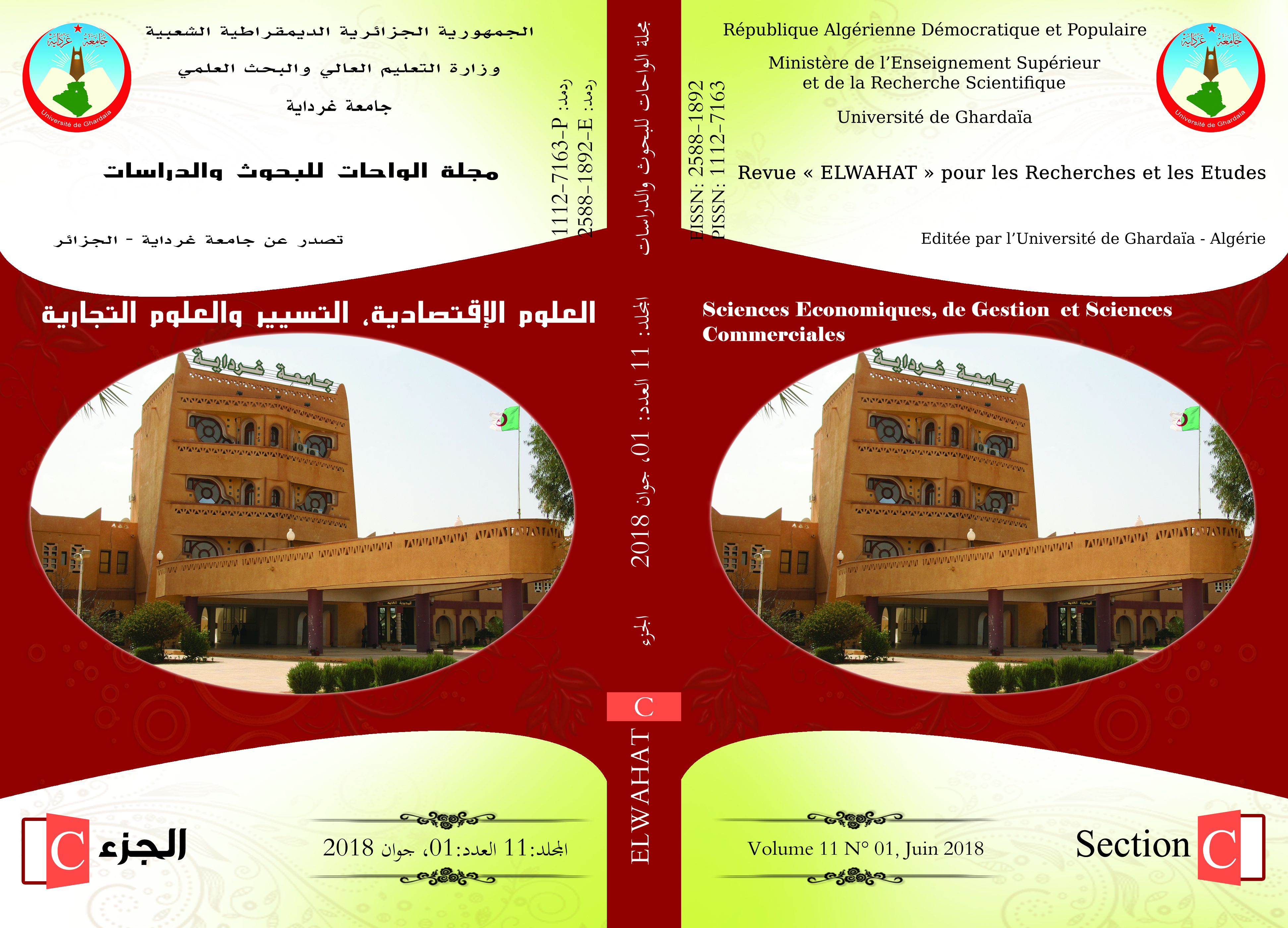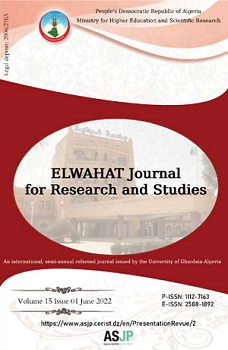Attitudes of primary school teachers towards teaching colloquialism (An exploratory study in the city of Ghardaia )
Abstract
This study aimed to identify the primary school teachers’ attitudes towards demotic Arabic teaching as well as to identify the differences according to sex and number of years of work and qualification . To achieve the objective of the study ,we applied primary teachers’ questionnaire about demotic Arabic teaching and make sure its psychometric properties (honesty and fortitude) on a sample of 140 primary school teachers of Ghardaia and using the descriptive exploratory and appropriate statistical methods and using statistical package for social sciences SPSS.19.0.
It has come up with the following results:
- There are negative trends among primary school teachers about teaching demotic Arabic.
- There is no difference between the primary school teachers' attitudes towards teaching colloquially by sex.
- There is a difference between the primary school teachers' attitudes towards teaching colloquially by the number of years of work.
And because the topic is a virgin area and void from previous or preceding studies, we decided to deal with the topic with the analysis of these results with the theoretical side all in illustrating the information we come up with in the field.
Keywords –
Orientation, - Teachers, - Demotic Arabic language.
References
2 - Ahmed Sayed Gharib, classification and implementation of social research, B, University Knowledge House 1995.
3 - Bashir Muammaria, Psychometric Measurement and Design of Tools, I 2, Al-Ink Publishers, Algeria, 2007.
4- Rabhi Mustafa Alian, Othman Mohamed Ghneim, Methods of Scientific Research, 4, Dar Safa Publishing and Distribution, Amman, 2010.
5- Samara Nawaf, Mohamed Abdulsalam Mousa Al-Adaily, BA, Concepts and Terminology in Educational Sciences, Dar Al-Massira for Publishing, Distribution and Printing, Amman, Jordan 2008.
6. Ammar Bouhoush and Mohamed Al-Thunibat, Methods of Scientific Research and Methods of Research Preparation, Third Edition, Journal of the Algerian Press, Algiers 2000.
7 - Fuad Bahi Al - Sayed, Saad Abdel - Rahman, Social Psychology (contemporary vision), Arab Thought House, Cairo, 2006.
8- Mohamed El Sayed Abou El Nil, Psychological and Social Statistics and Personality Predictive Personality Tests, Arab Renaissance House, Cairo, 1987.
9- Muqaddam Abdel-Hafeez, Educational Psychometric Statistics and Statistics, 2 nd, University Publications, 2 nd, Algeria, 2003
10- Al-Salwadi Hassan, lecturer in Arabic language and methods of teaching in Palestinian universities, Higher Education Council, Research and discussions of the first symposium of the Islamic Research Center, Faculty of Arts, Al-Quds University, 1987.
11- Abdelkader Bqader, The Reality of the Arabic Language in Educational Schools in the Wilayat of Adrar, Journal of Linguistic Practices, Mouloud Mameri University Tizi Ouzou, No. 14, Algeria 2014.
12- Ali Ahmed Taleb, The Use of Slang in Teaching, Imam Muhammad Bin Saud Islamic University, Research on the Phenomenon of Language Impairment at the University Level, Volume 1, Riyadh, 1995
13. Kaïa Aleik, Standard Arabic in Primary School, Journal of the Linguistic Practice Laboratory in Algeria, 2014.
14- Mohieddin Mokhtar, Some Research Techniques and Report Writing, B, Journal of Studies in Methodology, Algeria, 2000.
15- Nasireh Amouri, The Problem of Language in the Algerian Child, Maaref Magazine, University of Akli Muhand or Haj, Bouira, 2013, Issue 14
16 - J MILTON COWAN, ADICTIONAIRY OF MODERN WRITTEN ARABIC, 3E, SPOKEN LANGUAG SERVICES, 1976, NEW YORK §. J MILTON COWAN, 1976, P641







